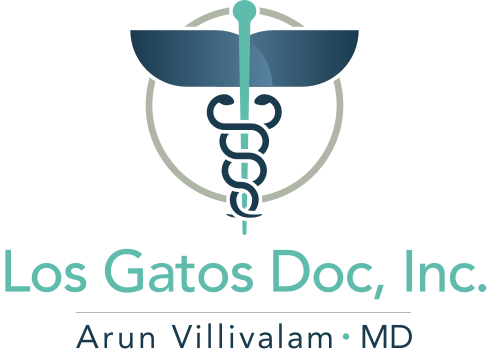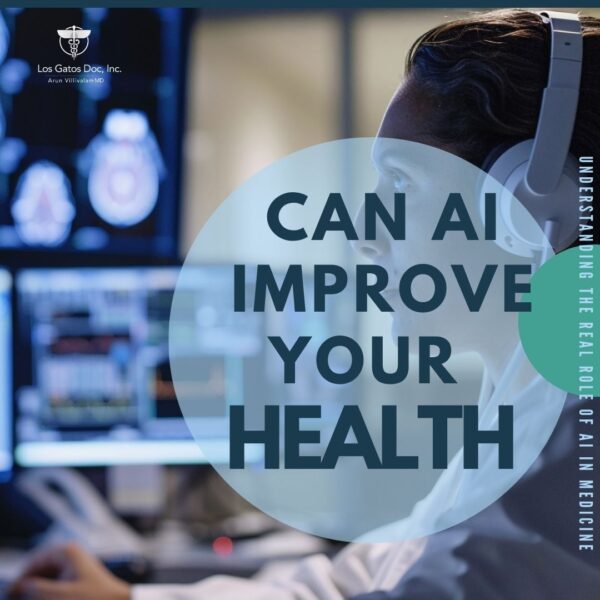When we think about adding artificial intelligence to healthcare delivery, you may feel a sense of hesitation, or even suspicion about its potential impacts. If this is your reaction, know that it’s a natural one. Healthcare is by nature a deeply personal, and sometimes stressful, experience. Adding AI to the mix might have you thinking that you’ll lose human interaction, and the personalization that comes along with consulting with your doctor that you know and trust.
The reality is that the introduction of AI into healthcare is bringing about the exact opposite. Patients are not losing that human, personal touch their doctor brings. Instead, AI is empowering healthcare providers to diagnose their patients with higher accuracy, and even faster. It’s even allowing them to develop treatment plans with a degree of personalization never before thought possible, while leveraging early detection and preventative care more than ever.
Let’s explore how AI serves as a powerful tool for healthcare professionals and brings immense benefit to patients.
How AI is Driving Faster, More Accurate Diagnostics
One of the overall benefits of AI, even outside of the healthcare industry, is its ability to quickly and accurately analyze huge amounts of data. This becomes particularly powerful in healthcare, because we can leverage machine learning to train models for the purpose of accurately diagnosing patients, based on their specific characteristics. Put simply, by providing the model with a vast amount of medical images, including X-rays, MRIs, and CT scans, it learns to identify specific conditions.
The result?
AI can identify conditions such as lung cancer, breast cancer, and retinal diseases at least as accurately as human radiologists—and sometimes even outperform them. A study published in Artificial Intelligence in Medicine found that deep learning models correctly identified breast cancer in mammograms with an accuracy rate of 94.5%, outperforming some radiologists (Nguyen and Holmes 102).
By combining AI diagnostics with clinical judgment, doctors are able to properly diagnose patients faster than before, while decreasing the chances of misdiagnoses brought on by human error.
Using AI to Personalize Medicine and Create Custom Treatment Plans
Another huge benefit that comes out of AI’s ability to analyze large amounts of detailed information in an incredibly short amount of time, is its ability to create specific, tailor-made treatment plans for patients. By allowing AI to analyze your genetic makeup and medical history, it’s able to determine what your most effective treatment options are, while minimizing potential side effects at the same time. And the reality is that AI is simply doing it better than the human mind is.
The approach of using AI to create personalized treatment plans tailored to specific patients is particularly successful in oncology. AI identifies targeted therapies for specific types of cancer, resulting in better patient outcomes, with fewer negative side effects (Topol 67).
In addition to creating the best possible treatment plan for a patient from the get go, AI also learns from your past responses to specific treatments, which equips your doctor with more information to refine your care plan as you progress. If a particular treatment or therapy wasn’t effective for you in the past, AI can recommend alternatives that may be more effective.
One of the core benefits of allowing AI to analyze a patient’s medical history and prescriptions is that it’s able to detect and warn about potential harmful drug interactions and allergic reactions, long before any medication is prescribed. Not only does this prevent negative reactions, but it saves the patient time and discomfort.
Finally, AI is even being used to predict a patient’s response to a particular treatment before it even begins. Harvard Medical School has developed an AI model that they have named “CHIEF” (Clinical Histopathology Imaging Evaluation Foundation), which analyzes digital slides of tumor tissues, and subsequently predicts patient responses to specific therapies (Harvard Medical School).
All of these personalized treatment approaches are made possible because of the power that AI has when it comes to data processing and machine learning.
AI-Powered Early Detection: Preventing Disease and Saving Lives
AI has taken predictive genetic testing to a new level, particularly when it comes to how quickly these tests can happen now.
What is predictive genetic testing?
It’s a medical test that uses your DNA to predict your risk of developing specific diseases in the future.
AI has the ability to evaluate your genetic predisposition to conditions like diabetes, heart disease, and certain cancers, by analyzing your genetic data to identify patterns. As a result, doctors are able to prescribe treatments to patients well before a condition advances, saving them immense hardship, money, and time.
AI has also empowered significant improvements in medical imaging analysis. For example, doctors are using AI technology to monitor babies’ heart rates during labor. Doing so helps them detect signs of distress during the process, which is what allows them to take action sooner. This may mean performing a C-section, to keep both the baby and the mother safe. The use of this technology has reduced stillbirths and newborn deaths by an incredible 75% (Baylor College of Medicine).
Challenges of AI in Healthcare
While we’ve focused on the benefits of leveraging artificial intelligence in healthcare delivery, there are some noteworthy challenges to consider.
At its core, AI relies on vast amounts of data in order to produce accurate analyses and diagnoses. This data needs to be real patient data, which means it needs to come from real patients. Therefore, it’s critical that this data is stored securely, and used in an ethical manner.
In addition to concerns about data privacy and security, scientists must also consider bias when building their AI models. For example, if a data set that is being used to train a particular model comes largely from patients who are in an older demographic, then this model may not be able to accurately diagnose younger patients.
This bias should also be considered when working with minority populations. If a population is not represented well enough in the training data, then the model will fail to accurately diagnose members of this very same minority population (Obermeyer et al. 2921).
Overall, AI has the immense power and potential to improve the quality of care that doctors are able to provide to their patients. But AI is certainly not a stand in for a physician. Instead, it is a tool that should be paired with the clinical judgment that doctors bring to the table.
Armed with AI, Doctors Have Never Been Better Equipped
There is no mistaking that at this stage, AI is not a replacement for the expertise and personal touch that doctors provide to their patients. That’s why it’s important to explore options for the best primary care physicians Los Gatos has to offer.
There is also no mistaking the incredible improvements and results that AI brings to healthcare delivery when leveraged correctly. AI is allowing doctors to diagnose conditions sooner, and with a higher degree of accuracy than ever before. It’s empowering them to create completely personalized treatment plans for patients, and preventing them from prescribing medications that may cause adverse side effects, or result in disappointing results down the line. And beyond this, it’s allowing for early detection and prevention.
As artificial intelligence continues to transform healthcare, it is vital to have trusted medical professionals who can integrate these advancements with compassionate, personalized care. Whether you need a consultation with Los Gatos family doctors, or are seeking a primary care physician in Campbell, finding the right doctor is essential for maintaining long-term health.
Works Cited
Baylor College of Medicine. “AI Used to Reduce Intrapartum Stillbirths and Early Neonatal Deaths in Malawi.” Baylor College of Medicine News, 7 Feb. 2023, https://www.bcm.edu/news/ai-used-to-reduce-intrapartum-stillbirths-and-early-neonatal-deaths-in-malawi. Accessed 1 Mar. 2025.
Harvard Medical School. “New Artificial Intelligence Tool for Cancer.” Harvard Medical School News, 27 Sept. 2023, https://hms.harvard.edu/news/new-artificial-intelligence-tool-cancer. Accessed 1 Mar. 2025.
Nguyen, David, and Sarah Holmes. Artificial Intelligence in Medicine: A New Era of Diagnosis and Treatment. Springer, 2019.
Obermeyer, Ziad, et al. “Dissecting Racial Bias in an Algorithm Used to Manage the Health of Populations.” Science, vol. 366, no. 6464, 2019, pp. 447-453.
Topol, Eric. Deep Medicine: How Artificial Intelligence Can Make Healthcare Human Again. Basic Books, 2019.






